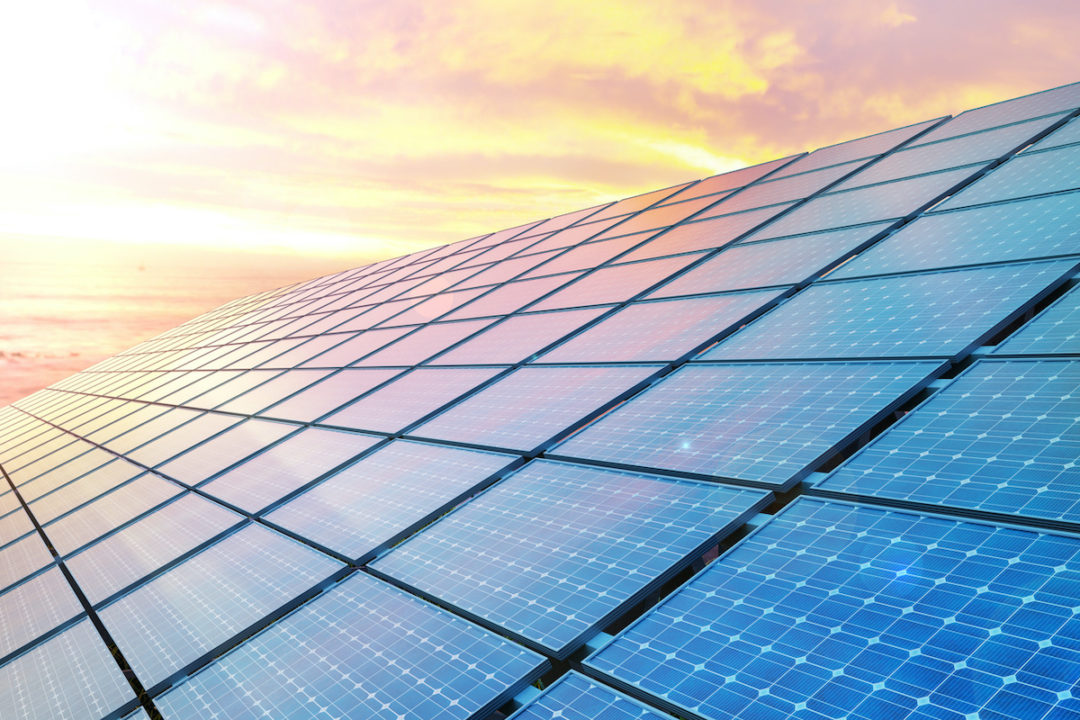
Visit Our Sponsors |
|
|
|
|
|
|
|
|
|
|
|
|
|
|
|
|
|
|
|
|
|
|
|
|
|
|
|
|
|
|
|
|
|
|
|
|
|
|

A close-up of solar panels can be seen in front of a sunset. Photo: iStock.com/JONGHO SHIN
Conflicting policies within the Biden Administration have provided China with a loophole that allows it to circumvent antidumping and countervailing duties on the export on solar cells and modules to the U.S.
That’s the contention of the Coalition for a Prosperous America (CPA), a bipartisan group representing U.S. manufacturing, agriculture and labor interests.
In August, the U.S. Commerce Department issued a final ruling that five Chinese producers were shipping solar products through Cambodia, Malaysia, Thailand and Vietnam for “minor processing,” as part of a scheme to avoid paying antidumping and countervailing duties.
That ruling is undercut, however, by President Biden’s Solar Emergency Declaration of June, 2022, which prevents the collection of duties from those four Southeast Asian countries until June, 2024, “as long as the imports are consumed in the U.S. market within six months of the termination of the President’s Proclamation.”
The idea was to give U.S. solar importers time to adjust their supply chains, “and ensure that sourcing is not occurring from countries found to be violating U.S. laws.” But according to CPA, the declaration has the effect of “protecting China’s illegal trade activity and rewarding the Chinese-backed cheaters.”
In addition, CPA says, Commerce’s final determination lets China avoid future duties on solar products by building wafer facilities outside of China — “something the Chinese are doing right now.” Construction takes around 18 months, the group adds, “which is why the Biden Administration chose to suspend tariffs for two years via its Solar Emergency Declaration.”
In 2009, then-President Obama signed into law the American Recovery and Reinvestment Act, which included tax credits for modernization and expansion of the U.S. electric power grid, including domestic solar development. But according to Nick Iacovella, CPA’s senior vice president of public affairs and communications, China proceeded to deploy “a myriad of tactics that made that law basically useless,” including price cuts and flooding the market with massive increases in capacity. Such actions “decimated” the U.S. solar industry, he asserts, and led to the closure of 14 American solar factories.
Imposition of tariffs by the U.S. on imports from China led to a “resurgence” of the American solar industry between 2018 and 2022, claims Iacovella, giving domestic producers “the largest market share globally that they’d had in 10 years.” Ultimately, however, China managed to circumvent tariffs imposed and maintained by the Obama, Trump and Biden administrations by setting up “mini-China” solar assembly plants in the four Southeast Asian nations, an action found to be illegal by the Commerce Department. Yet that ruling ran counter to Biden’s Solar Emergency Declaration, which Iacovella terms “one of the most backwards and harmful policies issued since he’s been in office.”
“The declaration essentially said to the Chinese, ‘We know you’re doing something illegal, but we’re going to allow you to do it for two years because we need a steady supply of imports,’” he says.
China is now using that grace period to complete wafer facilities in Southeast Asia, which will allow it to export solar products to the U.S. without having to pay duties. Iacovella charges the current White House policy gives China a permanent “get out of jail free card” from future penalties.
The Biden Administration’s Inflation Reduction Act of 2022 (IRA) was another attempt to jumpstart domestic industries, spurring tens of billions of dollars of investment and constituting “the largest industrial policy bill ever passed by the U.S. Congress and signed into law,” Iacovella says. “Unfortunately, tax incentives alone are not enough to counter what the Chinese are doing.”
Iacovella expects a new series of antidumping and countervailing duty cases against China to be filed with the Commerce Department, seeking duties on wafers produced in Cambodia, Malaysia, Thailand and Vietnam. He also sees substantial bipartisan support for restricting tax credits for any project that ends up benefiting Chinese producers, however indirectly. Such legislation likely has enough support to get to the President’s desk, he says, possibly to the point of being veto-proof.
Even within the current Administration there are many “who understand how important trade is to this whole puzzle,” Iacovella says. “You have to enforce trade law if you’re going to have a huge industrial policy like the IRA be successful.”
RELATED CONTENT
RELATED VIDEOS
Timely, incisive articles delivered directly to your inbox.






